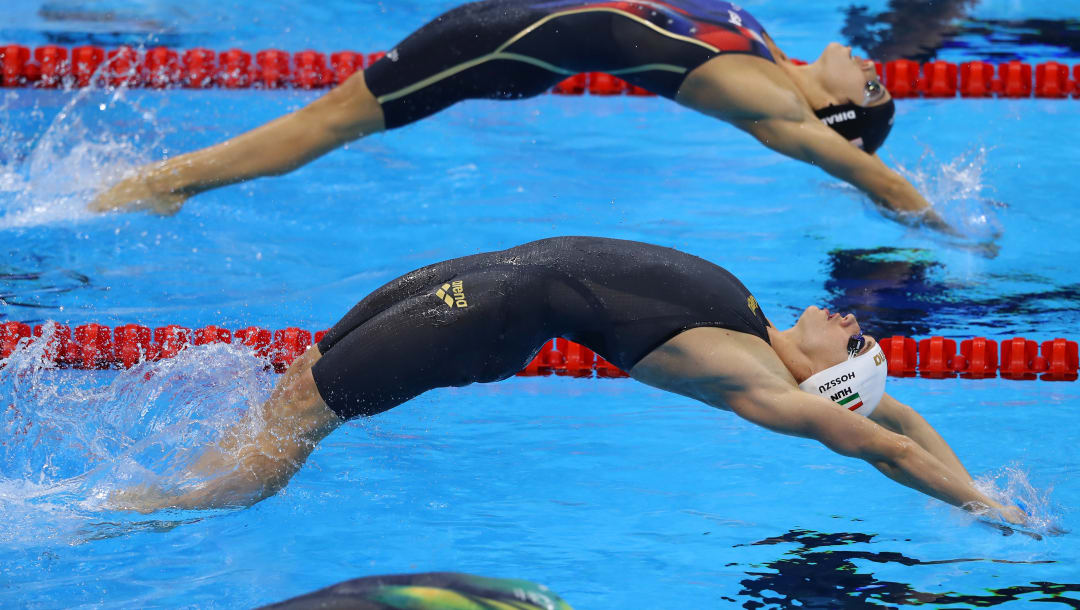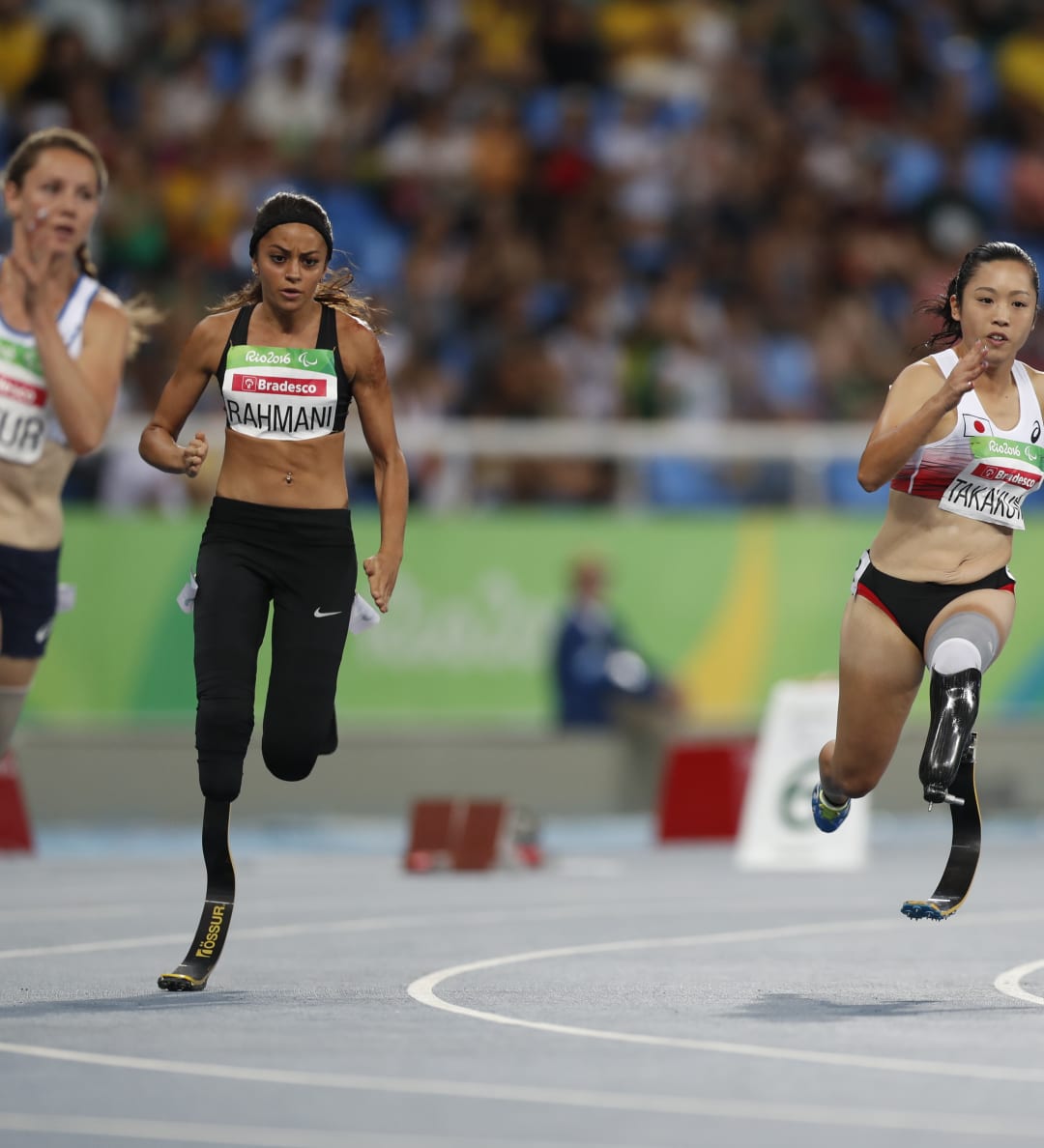A period is a part of the cyclic biological condition women (as well as trans men, intersex, nonbinary, and genderqueer) have to face. It happens every 21-35 days because the body is working to prepare everything for a potential baby to come. If there is no fertilized egg, the body says something like “well, now I won’t do it” and discards the thickened lining of the uterus (endometrium) through the vagina.
The disposal is made of blood and sometimes pieces of the endometrium. Somehow, in our over 200 million-year mammal evolution, this was the best mother nature could do to prepare the female body for reproduction. Our ancestors couldn’t even imagine menstruators (those who menstruate) could end up in a competition in the Olympic games.
The cycle
The menstrual cycle is divided between three important phases: the follicular, the ovulation, and the luteal. The early follicular phase marks the cycle’s beginning. The next phase is ovulation when the ovary releases an egg from its follicle (think of it as the egg’s ‘house’). The follicles are stimulated by follicle-stimulating hormone (FSH), and luteal hormone (LH) is responsible for the actual release of the egg.

A lot of hormones oscillate during the menstrual cycle, but let’s focus on the main ones: progesterone and estrogen. Progesterone is produced in the ovaries and helps to prepare the uterus for pregnancy and maintain a pregnancy. Estrogen prepares the endometrium for a fertilized egg. If the egg remains unfertilized, hormonal levels drop and that marks the restart of the cycle with the period.
The bleeding normally lasts from 3 to 7 days, varying from person to person. It can come with cramps caused by a hormone called prostaglandin, which helps shed the uterine lining. The good news is exercising can reduce the pain, but still, it can’t be that easy.
The cycle and sports performance
The first obvious change in an athlete’s performance due to their menstrual cycle is the period pains during menstruation, especially in the early follicular phase. The other common negative impact is being worried about flow during a competition, something that comes with the taboo behind period blood, especially when there are cameras everywhere.
During the period, the estrogen levels are very low, and that is a hormone that increases serotonin levels. Serotonin is famous for raising our well-being, improving our mood. Without enough estrogen, less serotonin is produced, making our female Olympians more prone to fatigue and anxiety, an awful combination for Olympic competition.
It is not just the period that marks the menstrual cycle, but the other phases have key hormone changes which alter the many things in people’s bodies. Different studies have reported that athletes feel a change in their training or competition performance in various phases of the menstrual cycle, in regards to their strength, speed, and power. But what may shock you is that athletes have felt an increase in performance during one of the menstrual cycle phases.

The best period phase for sports
For sports like boxing, wrestling, volleyball, handball, basketball, and soccer, the ovulatory phase is the best one for performance, thanks to the still large amount of estrogen. The sportsperson can feel more powerful and more motivated for training and competing.
Aerobic sports, like swimming, cycling and marathons are affected when the menstrual cycle changes muscle strength. However, the effect of the different phases seems inconclusive. Some studies may favor follicular phases for intermittent sports, while a different study showed better performance for marathon athletes during the luteal phase.
Most studies consider that the improvements which may show up in different phases are not that significant. Endurance is reduced during ovulation, but it is better during follicular and luteal phases, possibly due to the increase in the body’s temperature.
Also, many of the studies had inconsistencies, but a large number of athletes believe they feel a change from phase to phase. The future may change our understanding, with more women in academia, or maybe just a more objective approach. It is true that psychological conditions in a competition may be more affected, but no one is sure if the anxiety is hormonal or because of the taboo behind menstruation.
Modern strategies
Teams and sports organizations use information from monitoring apps to keep track of athletes performance. So if the phase favours muscle strength, while others don’t, coaches and doctors advise sportspeople to change the training routine according to the menstrual cycle, this helps get the best from exercises.
Taking the pill and regulating the cycle is always an option. It stops the hormonal cycle, and the athlete feels the same all the time, no FSH or LH production, which prevents ovulation. If it really alters the performance, it is not yet known. However, the psychological change with the regulation is indeed beneficial.
No period
It has been argued about the benefits of exercising to reduce period cramps, it works most of the time, especially with aerobic and low-intensity exercise. However, extreme exercise combined with a low intake of calories can result in a condition called the “Female Athlete Triad”. The athletes miss their periods and risk bone fractures. The body tries to compensate for the lack of nutrients by preventing the natural reproductive cycle and tries to save itself.
The are long-term consequences with this, however, complications that include osteoporosis and cardiovascular complications. The solution is helping the athlete to maintain a balanced diet with exercising, a challenge for some doctors due to some athletes’ competitive personalities and perfectionist tendencies.

There is no doubt that a gynecological periodic appointment is good for athletes’ health care. It is part of human nature and shouldn’t be an obstacle for elite sportspeople. The actual effect on performance has been pointed out by the athletes themselves and doctors, but with contradiction, maybe all we need is more research on uterine diseases to get more answers. After all, reproduction research does not only mean erectile dysfunction research.
References:
- The Impact of Menstrual Cycle Phase on Athletes’ Performance: A Narrative Review. Published in: Int. J. Environ. Res. Public Health.
- 2014 Female Athlete Triad Coalition Consensus Statement on Treatment and Return to Play of the Female Athlete Triad. Published in: British Journal of Sports Medicine.
- Exercise for dysmenorrhoea. Published in: Cochrane Library.









